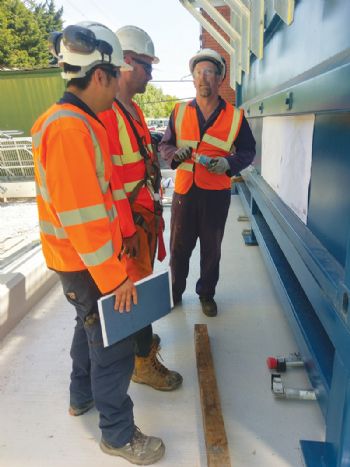
Siltbuster Process Solutions (SPS) has commissioned a new effluent treatment plant for Tata Steel’s Shotton Works, doubling the site’s treatment capacity.
A turn-key solution was designed, built and installed by SPS that can treat up to 40m
3/hr, removing at least 80% of the zinc traces in the effluent.
Tata Steel (
www.tatasteel.com) invited SPS to tender for the project after the water treatment specialist successfully delivered a full-scale treatment pilot plant to the Shotton site in 2015.
That pilot enabled Tata to test the chemical treatment process it had in mind for its effluent.
SPS general manager Rich Matthews said: “Companies are increasingly using our modular plant to test out ways of optimising the processes and chemistry behind their effluent treatment by running our pilot system in parallel (or as a side stream) with their existing plant.
“During the pilot, they can not only refine their treatment processes but also become familiar with our technology, team and approach.
“The fact that the test plant can then be scaled up to a permanent solution makes the transition so much easier for the customer.”
In the case of Tata, the SPS pilot plant worked so well that the company was able to wind down its ageing treatment plant, rather than running the two in parallel.
This made SPS an obvious candidate when Tata was ready to install a permanent solution.
Occupying a quarter of the footprint of the old plant yet doubling the treatment capacity, the permanent treatment plant consists of modular process stages — including a four-stage mixed reaction tank — plus the associated instrumentation and pumping equipment.
Tata Shotton works manager Bill Duckworth said: “The new treatment plant will increase the volume of effluent that can be treated; it will reduce waste, reduce our energy consumption and make the process more-efficient and controlled.”